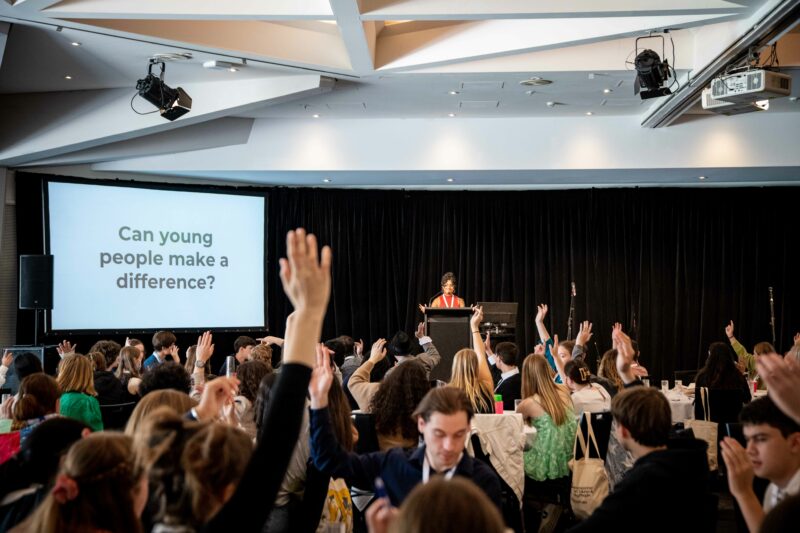Youth organising as a strategy for social change
"Young people aren't satisfied with incremental change. They'll put themselves on the front line for the betterment of their whole community.” Mónica Córdova
In November 2022, FYA convened the Youth Engagement Funder Network for a series of events with Mónica Córdova, the Executive Director of the US-based Funders’ Collaborative on Youth Organizing (FCYO). The events explored how to advance youth organising as a strategy for youth development and social change, featuring Sonia Arakkal, Co-Founder of Think Forward, Cat Nadel, Co-Founder and National Director of Tomorrow Movement, and Ed Krutsch, Founder and National Director of Run For It.
Here’s a few key insights from the events:
Build communities for social change
“What’s important for us is that young people have the space, resources, and the time to actually develop strategies that they see are going to move…transformation that improves our communities,” said Mónica.
In 2021, FCYO raised $22 million from philanthropic members through their Youth Power Pledge, with the aim of building the field.
As a collective of both youth organisers and institutional philanthropy, FCYO are working to strengthen the capacity of young organisers through building the community around them.
They’re investing in individual and collective development of current and future movement leaders, while growing the intergenerational community of support that allows movements to be more strategic, well resourced, and dynamic.
Early investment in young people
“We think young people are so critical to this work because they can be the moral compass for a whole society…we refer to them as like the tip of the spear,” said Mónica.
Cat Nadel agrees, “Young people don’t live single-issue lives. That’s not how we see and experience the world.”
FCYO asks philanthropists to take the risk to invest early and deeply in youth-led change, with an understanding that young people can see what is possible.
“If someone had taken us seriously, five years ago, when we first started, where would we be now?” said Sonia Arakkal.
“I wish people had trusted us right at the beginning…because that is the time when we had the most energy. This (energy) is something you lose when you’re not backed early on – it becomes harder, the longer you’re in it.”
Fostering relationships beyond financial support
In 2017, FCYO re-evaluated their strategy to try and encourage more transparency between organisations and their funders.
FCYO has learnt that vulnerability is key in allowing philanthropists and organisations to “build together in different ways.”
“It’s about supporting their leadership in a holistic way,” Monica said. “Whether that’s political education, wellness resiliency practices; it provides healthy social, emotional development, and then it also strengthens intergenerational and intersectional movements.
“We don’t live our lives in silos. Issues that impact our communities are diverse, and it’s going to take not just young people, but intergenerational partnerships that will help transform society.”
